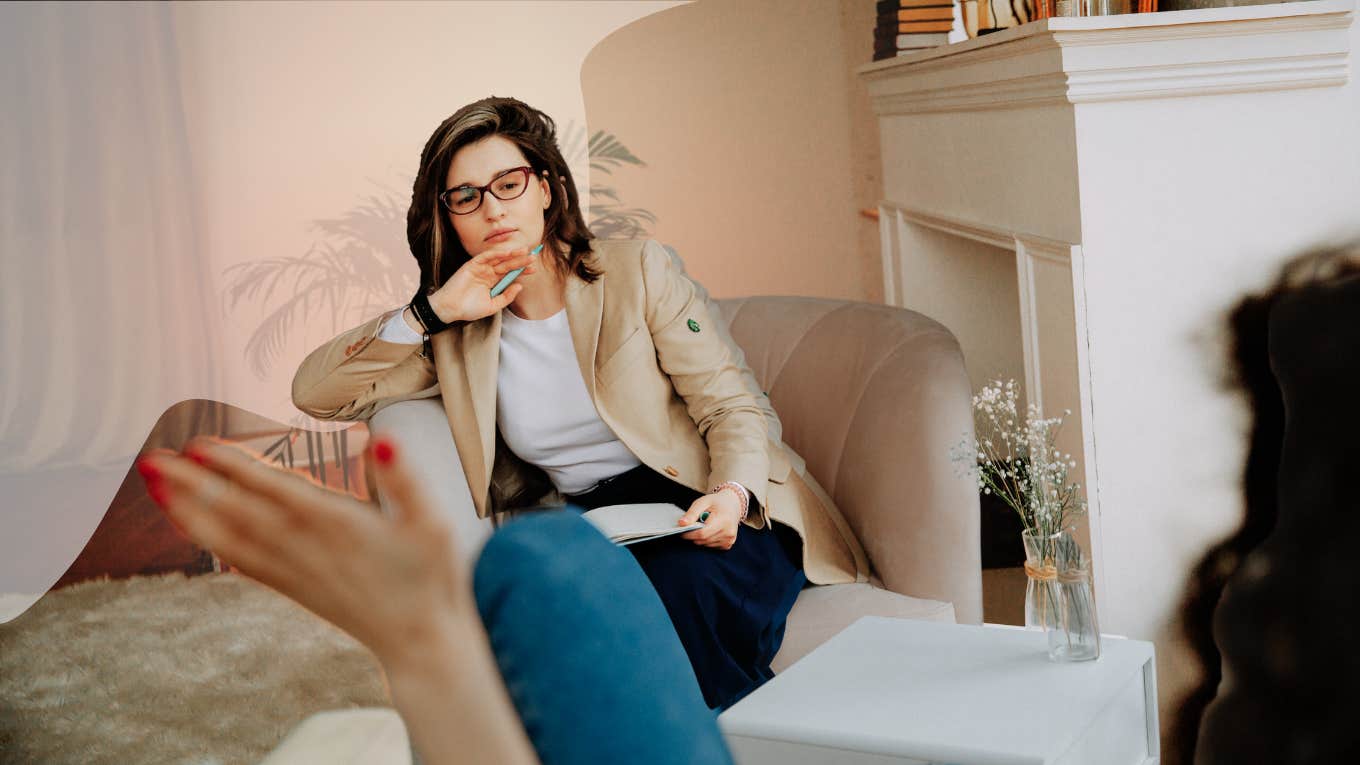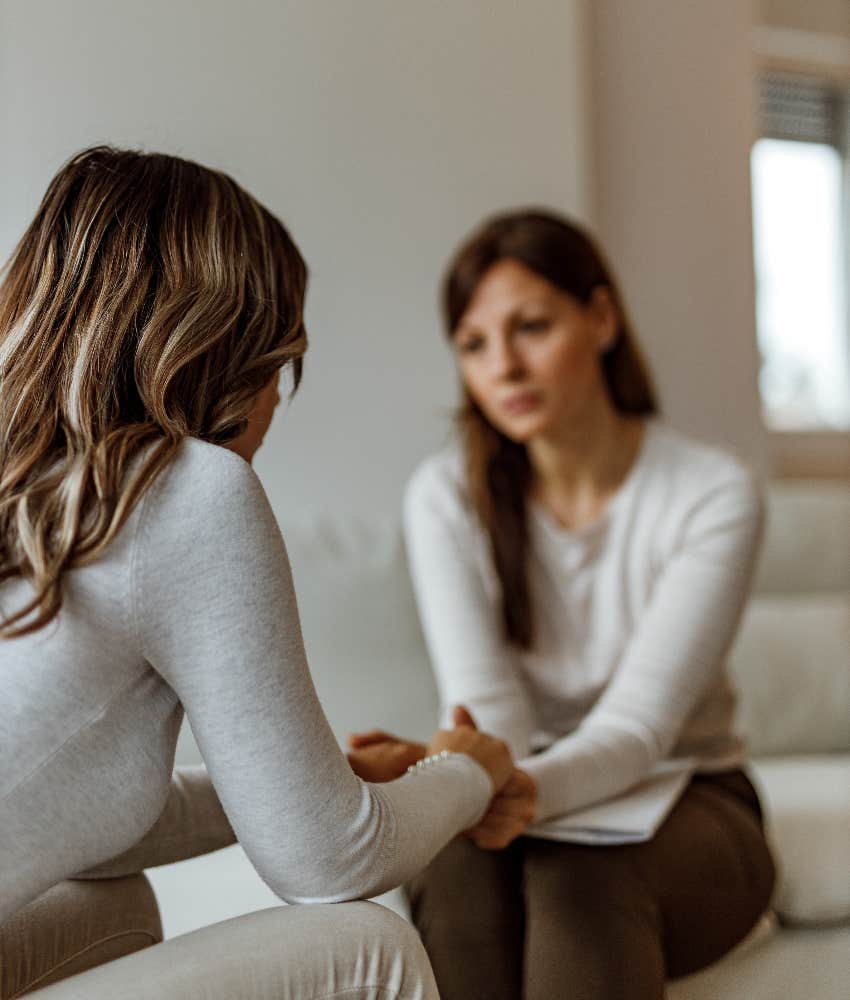Therapist Reveals What Will Happen If Your Spouse Goes To Counseling Without You
Best you know what you’re (not) getting into.
 Polina Zimmerman | Canva
Polina Zimmerman | Canva You probably have really good reasons not to join your partner in seeing the couples therapist your partner wants both of you to go to. But your partner wants to go because they want more from their relationship. They might be bored, tired of fighting, dealing with some difficulty or crisis in their relationship with you, or just curious about how to improve the bond.
As a couples therapist, I would love for you to come too. It will change your life.
Therapist reveals what will happen if your spouse goes to counseling without you:
1. You forfeit your voice
Your partner’s narrative will be the sole narrative in the room. This one-sided story will subsequently affect the interventions, suggestions, and overall assessment of their therapist. Your partner will be doing some soul-searching and the answers they find won’t include your perspective.
 Branislav Nenin | Shutterstock
Branislav Nenin | Shutterstock
2. Unilateral changes
Your partner will be encouraged to start varying their behaviors in ways that you might not like, agree with, or appreciate. If you protest, your partner will remind you that you chose not to come, so you don’t have a right to veto such changes.
3. Clinical affair
Without you in the room, your partner and therapist will build an intimate relationship filled with moments of joy, sadness, other emotions, and vulnerability. It is easy for a therapist to be an empathic and loving listener, as they have no history or expectations from their client (after all, the client is not their partner).
The problem is that when your partner compares their intimate relationship with their therapist to their tense relationship with you, it will accentuate how bad your relationship is. That can solidify your partner’s negative perception of you. What do you think about that?
What do we do in couples therapy?
Couples therapy is essentially systemic therapy. Improving the relationship means unbalancing the current relationship dynamic (also called homeostasis) to induce a new dynamic.
Changes might be emotional, behavioral, and conceptual. Clients reach these changes through self-confrontation, digging in deep, and learning new skills. When you’re not in the room, you’ll be surprised and unprepared for the dramatic changes your partner will make.
What to expect from your partner going to therapy?
It depends on how seriously your partner wants to work on themselves. I’ll draw two scenarios; one is the best case for you (and the worst case for your relationship), and the other is the worst case for you (but the best for your relationship).
Best case for you (worst case for the relationship):
In the first scenario your partner doesn’t surrender to the process, they don’t do the homework or exercises given to them. They might share some interesting insights and ideas from therapy, quote their therapist, or encourage you to read a relationship book. But you won’t see any difference in their day-to-day behavior. The dynamic will stay more or less the same.
The good news for you is that there won’t be any pressure to change. The bad news is that your relationship might not improve. This could either lead to apathy and stagnation or to a unilateral termination of the relationship.
Worst case for you (best for the relationship):
In the second scenario, your partner fully commits to therapy and starts focusing more on themselves and less on trying to change you. You’ll start to recognize changes in the way they talk, behave, and perceive relational situations. They will be less critical of you and take more responsibility for their contributions to the dynamic. They’ll begin to listen to you differently and react in novel ways to familiar patterns.
In the beginning, you might find these changes cute, refreshing, or positive. Yet, if they continue to unbalance the dyad, the bar will rise, and your partner won’t tolerate your historic behaviors, attitudes, tactics, and antics. You won’t know what to do, so you’ll do what systems do best: resist change. You might ridicule, mock, offer ultimatums, take offense, even get sick — in an unconscious attempt to pull your partner back to their old dynamic.
If your partner withstands this systemic pressure, they will advance to their next evolution, which raises the bar and forces you to self-confront and grow to stay relevant and worthy of your partner. If you don’t change, there’s a higher chance that your partner might want to part ways.
How can I still be part of the change process?
1. If you don’t want to grow, change, evolve, or step out of your comfort zone, then do nothing
Just keep doing what you’ve always done. Don’t ask your partner about therapy and what they’re learning about themselves, you, and your relationship.
2. If you do want a better relationship, I recommend you join them in therapy
If you can’t or won’t, then at least be curious about their clinical journey. Ask them to share their realizations, thoughts, and new understandings. Be empathic when they share their shadows and limiting core beliefs.
Be patient and forgiving as they take responsibility for their actions. Celebrate any little relational change they make. Thank them for leaving their comfort zone and daring to want a better life and relationship for both themselves and you. In short, get involved in the process.
So what will you do? It’s in your hands. Just don’t tell me later that I didn’t warn you.
Assael Romanelli, Ph.D., is a clinical social worker, licensed Couple & Family Therapist, and an international trainer. He is the founder and co-director of The Potential State For Enriching Relationships.

